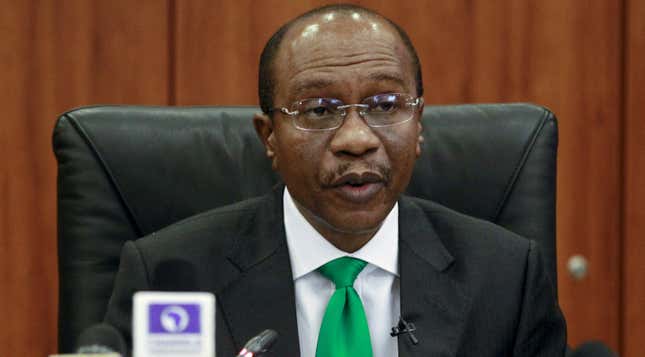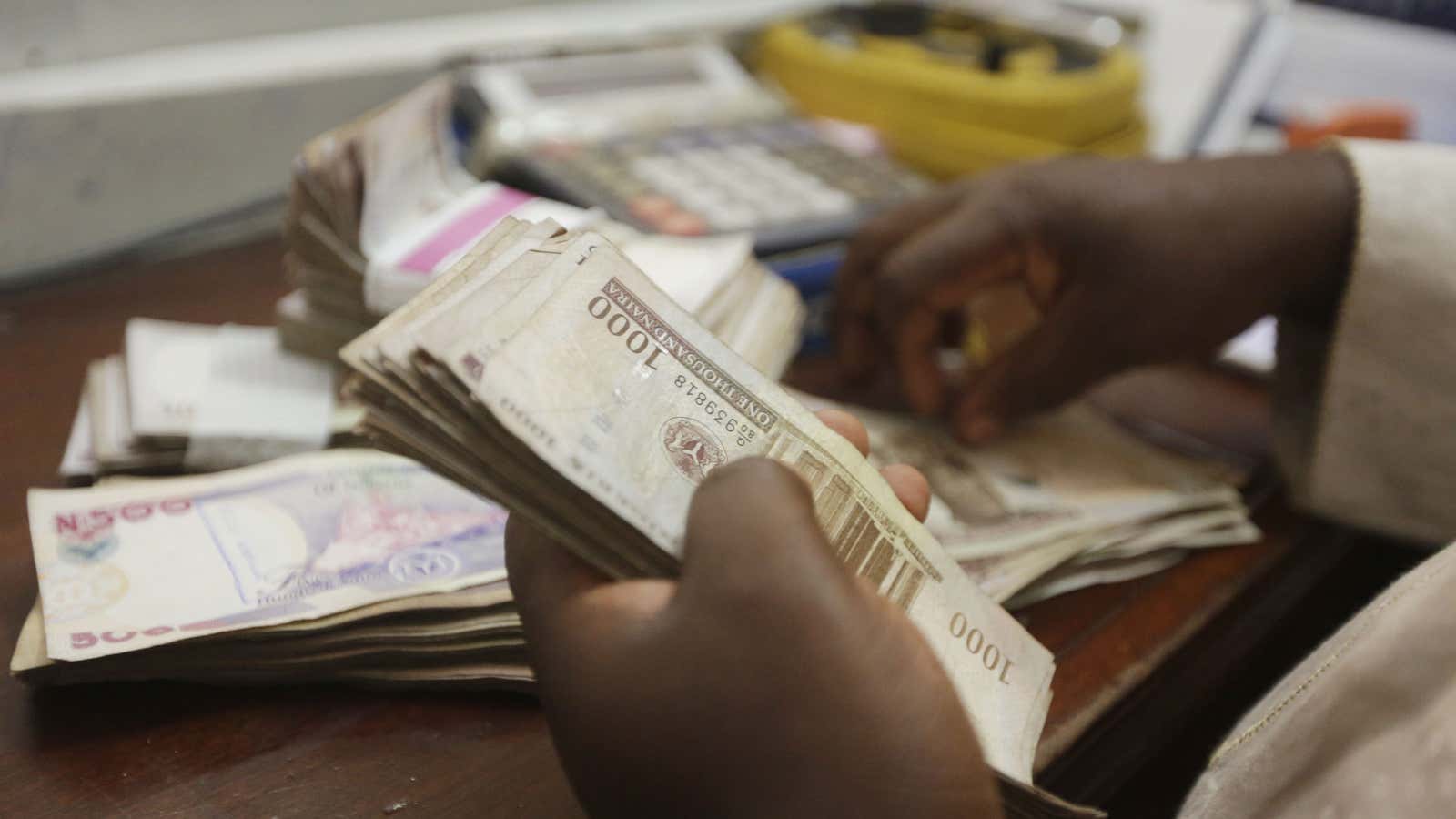In episode 5 (Season 2) of the hit Showtime television series, “Billions”, the lead character Bobby Axelrod, a hedge fund manager (played by Damian Lewis), has lost money in his fund for the quarter and has three days to dramatically get the fund back to profit before the quarter closes out.
And what’s his risky gamble?
Axelrod decides to roll the dice on the Nigerian naira in a daring currency speculation trade. It’s funny to watch it play out. But, as a popular Nigerian saying goes, there is much truth said in jest.
The Nigerian naira has slowly, but surely, been turned into something of a joke in the last couple of years. While the country is desperate for serious foreign investment, a series of self-inflicted wounds has meant that it can only expect to attract the daredevil characters like Bobby Axelrod’s who are looking for a quick buck.
As much as Nigeria is heavily dependent on oil revenues for its foreign currency needs, none of what has happened since oil prices began their sustained downward trajectory in the summer of 2014 was inevitable. Policies are now adopted for how unconventional they are—in the imagination of monetary policy makers, the country is in some kind of guerrilla warfare against the forces of markets and prices.
The idea that perhaps trying out conventional ideas may not be so bad is dismissed out of hand for its unnecessary simplicity. Allowing the naira to be priced based on the interaction between demand and supply? It will never catch on.

Recently, I joined with 15 other frustrated Nigerians (10 chose to remain anonymous) to write an open letter (pdf) calling for the person responsible for most of this mess—the central bank governor, Godwin Emefiele—to resign from office. We listed his various errors and tried to contrast them with the fact that other countries who also suffered oil shocks have managed to get their currency stable and functional while they move on to solving other problems.
At the time of the letter, we listed 10 different exchange rates for the naira to the dollar. In the time since the letter was published (February), a new rate has been added to the list for people buying personal travel allowance (PTA), paying for foreign medical expenses and school fees. As has been the case, this new rate (375 naira to $1) was conjured out of thin air based on nothing but the whim of the central bank governor.
Previewing a copy of the letter on Twitter led to a small rush of donations by people who wanted to contribute something to getting it published in local newspapers. Such is the complete loss of confidence in Emefiele and his management of the nation’s monetary policy. But why write an open letter asking him to resign? Is Nigeria the kind of country where public officials can be shamed out of office with a public call for their resignation? Certainly not.
Most Nigerians (including those who gave money towards getting the letter published in the papers) will call the whole exercise a waste of time. It’s possible that the central bank governor did not even read it.
Maybe literature can help with an explanation. The late great Chinua Achebe once said in a 1965 essay that ‘an African writer should aim at fashioning out an English which is at once universal and able to carry his peculiar experience’. His point was that he was never going to dilute the English language just because he was an African writer. Instead, he was going to bend the language to his will. This point was more clearly expressed in another, more famous quote of his – ‘Let no one be fooled by the fact that we may write in English for we intend to do unheard of things with it’.
Yes, Nigerian public officials are not famous for resigning under the weight of their own incompetence. Yes, the odds on a snowflake successfully navigating the nine concentric circles of Dante’s Inferno are far better than what you will get putting money on a Nigerian public official heeding your call for them to resign. There are many things one can do with money that will yield much greater reward and satisfaction than writing a letter to the central bank governor in the newspapers.
But it is important that these things are written down and kept on record. It is necessary to register displeasure at public officials even if you are no more than a buzzing fly they can comfortably ignore. It is a protest against mismanagement, gimmickry and leading the country down a path that makes it a laughing stock in the eyes of the world. It is within the power and rights of citizens to speak up against policies they disagree with whether or not their voice is heard.
That one uses a tool not (yet) effective against public officials in Nigeria is not the problem. It is the public officials who have some catching up to do. Let no one be fooled.
